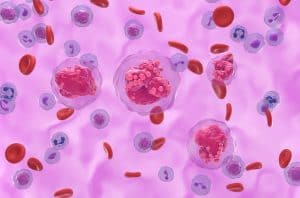NICE releases ‘person-centred’ medicines optimisation guidelines
pharmafile | October 14, 2014 | News story | Research and Development, Sales and Marketing | ABPI, NHS, NICE, UK, WHO, Whitehead
NICE has recently released the draft of its first guidance on medicines optimisation that it hopes will be more person-centered and influence decision-making.
Getting the most from medicines is becoming increasingly important in the UK as more people are using more medicines NICE says, and as the population ages more people are living with long-term conditions – with many suffering from more than one.
The World Health Organization has estimated that between 30% and 50% of medicines prescribed for long-term conditions are not taken as intended – for example with incorrect dosages or at inconsistent times.
NICE says that it wants to ensure “a person-centred approach to safe and effective medicines use, enabling people to obtain the best possible outcomes from their medicines”.
The organisation highlights shared decision-making in particular as being ‘essential’, with the aim being to use the best available evidence to guide decisions about patients’ care, taking into account their needs, preferences and values.
The draft guidelines contain a list of over 50 recommendations, but NICE has identified four key areas for priority implementation.
The watchdog wants to ensure that medicines reconciliation is carried out by a ‘trained and competent’ health professional with skills in effective communication, technical knowledge of processes for managing medicines, and therapeutic knowledge of medicines used.
NICE also recommends using several methods to identify medicines-related patient safety incidents, including health record review, direct observation of medicines administration and patient surveys.
Another priority area is medicines-related communication systems. The guidelines emphasise the need to include a wide range of data in medicines discharge information when a patient moves from one care setting to another, including details of the person and their GP, known drug allergies and reactions to medicines, and extensive details of medicines they are taking and how they are taking them.
Commenting on the draft guidance, ABPI chief executive Stephen Whitehead says: “The ABPI welcomes the publication of NICE’s draft guidance on Medicines Optimisation. I am particularly pleased that the draft guidance has recognised that patients should be at the centre of decisions about their care.
“The ABPI has always maintained that supporting patients to use medicine more appropriately will not only deliver better patient care, it will also provide cost savings for the NHS by improving NHS productivity – by reducing the need for longer term, more expensive treatment and helping to shift care from hospitals into the community. It is essential that the right patient gets the right medicine at the right time.
Stakeholders are now being invited to comment on the draft, with the anticipated final publication date of the guidance being March 2015.
George Underwood
Related Content

NICE recommends migraine treatment for NHS use
The National Institute for Health and Care Excellence (NICE) has shared draft guidance recommending AbbVie’s …

GSK’s Jemperli recommended by NICE for endometrial cancer treatment
GSK has announced that the National Institute for Health and Care Excellence (NICE) has recommended …

NICE recommends SC treatment of AbbVie’s Tepkinly for patients with DLBCL
AbbVie has announced that the National Institute for Health and Care Excellence (NICE) has recommended …








